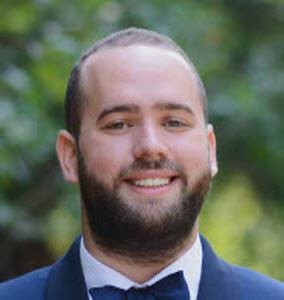Civil Resolution Tribunal accepting early strata intake July 13th
Need a refresher on Online Dispute Resolution? Check out the introduction to our ODR series here.
The following entry is a cross-post from the Civil Resolution Tribunal website.
By Shannon Salter
Chair of the CRT
We’re happy to let you know that on July 13, 2016, we’ll begin accepting strata claims for early intake.
By starting early intake, we’ll have a chance to test our process to make sure it works as well as possible for the public once we’re fully open. It will also allow us to provide a little help for people with ongoing strata disputes who are eager to take their first steps toward a resolution.
We’ve taken a lot of steps to prepare for early strata intake this summer. The Civil Resolution Tribunal Act strata provisions and the related amendments will be in force on July 13, 2016. The CRT’s fees have been set and the CRT’s rules are being finalized.
On July 13, 2016, we’ll have detailed information on the website telling you how to start the CRT process. Basically, it’ll work like this:
- You’ll start with the Solution Explorer, to learn more about your dispute and how to resolve it without needing to start a CRT claim.
- If you can’t resolve your dispute using the support from the Solution Explorer, you’ll have the option to start a CRT claim from the Dispute Summary screen in the Solution Explorer.
- You’ll use our Application Checklist to make sure you have all the information you need to complete your online Application for Dispute Resolution.
- You’ll complete and file your Application for Dispute Resolution online. Paper forms are not available for the early intake process, but you are welcome to have a trusted friend or family member help you fill in the online form.
- You’ll have to pay the application fee, or apply for a fee waiver if you have low income. You can pay the fee or apply for a fee waiver online as part of the application process. Here’s more about the CRT’s fees.
- We’ll provide you with a Dispute Notice to give the other parties in the dispute. We’ll let you know how to do that, as well as next steps.
Please remember that the CRT is not completely implemented yet. We are not yet fully staffed, and the technology is not completely built. We’ll use this time to test and improve our online intake processes for strata. Although we’ll start accepting applications for strata dispute resolution, we won’t be ready to resolve disputes right away. That will happen once we’re fully open to accept and resolve strata disputes in the fall.
You may have to wait several months for your dispute to move to the facilitation phase. We’re still getting ready for the large number of strata disputes we expect to see once we’re fully open. We’ll need everyone’s patience as we learn and improve on the job.
Here’s a reminder of some of the benefits and limitations of using the CRT’s early intake process for your strata dispute.
Benefits of CRT early intake for your strata dispute:
- It can pause the limitation period. Many strata claims have a 2 year limitation period. The limitation period acts like a countdown clock, and when this time runs out, you may not be able to bring a claim to the CRT or a court. But, if the CRT accepts your dispute into its early intake process, the limitation period will be ‘paused’ and stop counting down. You can find out more about limitation periods here.
- You’ll be ready for CRT resolution. As soon as we’re ready to start moving strata disputes into our facilitation phase, you’ll be ready for this next step toward a resolution. Just making your early intake application might help to clarify the issues and encourage an early resolution by agreement among the parties in your dispute.
- You’ll help shape the CRT process. Our early intake will help us test our online intake processes to make sure they meet your needs. You might get a chance to show us how you think things should work, which will make the CRT better for everyone.
IMPORTANT: Limits of filing a CRT claim during early intake
- The CRT’s full dispute resolution services won’t be available during early intake. You will be able to start your claim, but this is mainly a testing phase for intake. Many disputes will need to wait until the rest of our processes are ready before they are resolved. We expect this to happen in the fall. Our timeline target of 60 to 90 days won’t apply to the early intake testing.
- Your ability to go to court may be limited. If you apply for strata dispute resolution with the CRT, you and the other parties will be required to continue in the CRT, rather than going to court instead. If you start, and then decide you would rather go to court instead of waiting for the CRT to fully open, you’ll need to ask the CRT’s permission. If this happens, the CRT would probably agree to it during early intake.
- Not everything will be online. You’ll be able to use the Solution Explorer for strata disputes and you’ll be able to apply to the CRT using our online system. However, other dispute resolution processes will be done through email, video, telephone or mail, while we continue to build the CRT technology.
Please watch for more information about the CRT’s process in the coming days. Please also let us know if you have any questions or comments at info@crtbc.ca.
STAY INFORMED WITH THE CIVIL RESOLUTION TRIBUNAL


